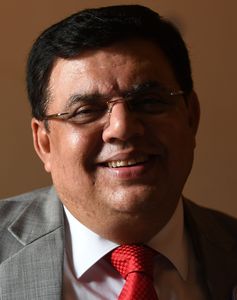Q/ Where is the Anglo-Indian community in India poised at this point in time?
A/ According to me, the community is approaching its ‘Everest moment’ in the sense that a large majority of Anglo-Indians are now focused on jobs and higher education, which was not the case a couple of decades ago. The community is very secure and comfortable in modern India.
Q/ Please elaborate.
A/ There was uncertainty in the 1940s and 1950s as to whether they will be able to go on with their way of living post independence. That is why several of them went back to the fatherland. But many were not comfortable in other countries and returned. However, leaders like Sir Henry Gidney and Frank Anthony worked to bring the community together, and Anthony even underlined that India was the country of the community and they should not leave. The 1960s and 1970s saw community members leaving to reunite with family abroad. The community did not look for a tomorrow in India and did not realise the importance for their children to get higher education. Things, however, changed post liberalisation. The importance of English and adaptation of ‘Anglo-Indian pattern’ of school education changed the relation of the community with the society at large, making it friendlier. In the 1990s, the community realised the importance of higher education and made tremendous progress in the last two decades.
Q/ But there have been worries about dwindling numbers of the community.
A/ Ours is undoubtedly a small community and it has existed for 400-500 years now. We have our culture, our way of life that spark within people a sense of joie de vivre. We should continue to revel in the fact, and not dilute our culture or lose our identity. We should be ourselves, and not be concerned about what happens in 20 or 50 years from now in terms of numbers.
Q/ Is there a push for intracommunity marriages from the association?
A/ Not at all. Marriages are an extremely personal matter.... We brought about a very important change last year. The spouses and children of women who marry outside the community, if they choose so, are welcomed as members of this great family and can participate in all the social and charitable activities.
Q/ There seems to be no official figure available on the community.
A/ There has been no official counting done. So, I should not be putting any figure out. The closest I can say is a few lakhs. Our association has 12,000 families as members, but we find it difficult to open branches in smaller places with just two-three families.... When I was nominated MLA in the West Bengal assembly, I tried to get a count done. But it is not possible without adequate process and machinery. If a counting is done through Census, I am certain 99 per cent of the community members would register themselves as Anglo-Indians.
Q/ Do you support the continuation of political representation for the community, slated to expire in January 2020 (Parliament scrapped the quota in December 2019)?
A/ Yes, I support the demand for continuation of nomination of community representatives to the Lok Sabha and state assemblies, but the important thing is about adopting a transparent and tight selection process for this nomination. Largely, these reserved seats have been politicised. Affiliation to a party cannot be a basis for selecting the representatives. The person nominated must have a connect with the community and a vision for its welfare and progress. Also, the nomination by the AIAIA cannot be ignored as it is the largest body representing the community. Over the last two decades, the AIAIA has been ignored in this regard. There is a move to end the representation and if it happens, that will be darkest day in the history of my small yet gallant community.


